- Doctors & Departments
-
Conditions & Advice
- Overview
- Conditions and Symptoms
- Symptom Checker
- Parent Resources
- The Connection Journey
- Calm A Crying Baby
- Sports Articles
- Dosage Tables
- Baby Guide
-
Your Visit
- Overview
- Prepare for Your Visit
- Your Overnight Stay
- Send a Cheer Card
- Family and Patient Resources
- Patient Cost Estimate
- Insurance and Financial Resources
- Online Bill Pay
- Medical Records
- Policies and Procedures
- We Ask Because We Care
Click to find the locations nearest youFind locations by region
See all locations -
Community
- Overview
- Addressing the Youth Mental Health Crisis
- Calendar of Events
- Child Health Advocacy
- Community Health
- Community Partners
- Corporate Relations
- Global Health
- Patient Advocacy
- Patient Stories
- Pediatric Affiliations
- Support Children’s Colorado
- Specialty Outreach Clinics
Your Support Matters
Upcoming Events
Colorado Hospitals Substance Exposed Newborn Quality Improvement Collaborative CHoSEN Conference (Hybrid)
Monday, April 29, 2024The CHoSEN Collaborative is an effort to increase consistency in...
-
Research & Innovation
- Overview
- Pediatric Clinical Trials
- Q: Pediatric Health Advances
- Discoveries and Milestones
- Training and Internships
- Academic Affiliation
- Investigator Resources
- Funding Opportunities
- Center For Innovation
- Support Our Research
- Research Areas

It starts with a Q:
For the latest cutting-edge research, innovative collaborations and remarkable discoveries in child health, read stories from across all our areas of study in Q: Advances and Answers in Pediatric Health.


TTTS Diagnosis and Decision
Coming to terms with TTTS
Twin-to-twin transfusion syndrome (TTTS) is a disorder that affects identical twin pregnancies. It can occur when two fetuses share a placenta because there isn’t a barrier separating the two fetuses from each other. At the Colorado Fetal Care Center at Children’s Hospital Colorado, our doctors are experts at identifying and treating twin-to-twin transfusion syndrome.
Our families discuss their TTTS diagnosis
When their pregnancies became high risk, Nicole and Alyssa came to our Center. While their stories are unique, their journeys are the same.
See what it was like for these families to receive a TTTS diagnosis and to say "yes" to fetal surgery.
TTTS resources for families
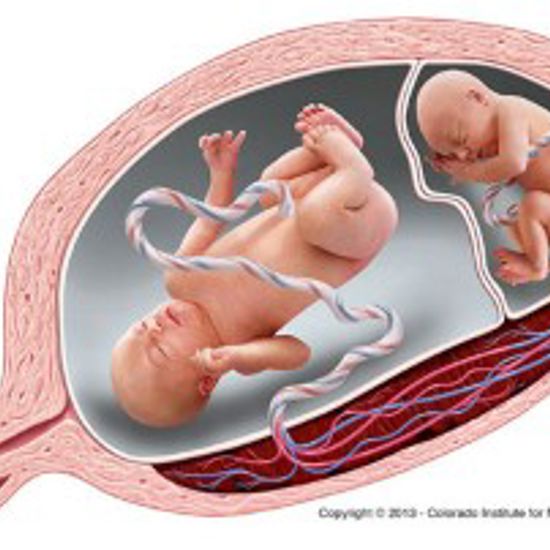
TTTS: the basics
Get an in-depth overview of this disease, along with twin-to-twin syndrome symptoms, what the babies experience, how it's diagnosed and treatment options.
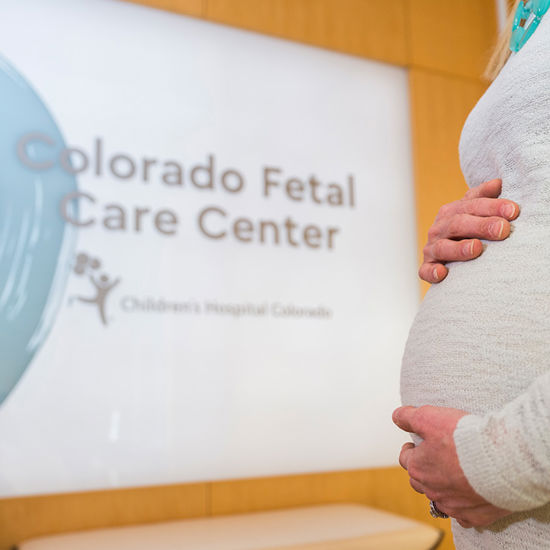
Facing a TTTS diagnosis
At the Colorado Fetal Care Center, we offer the most comprehensive, state-of-the-art testing, counseling and treatment for TTTS available. And thanks to our care coordinators, all of your appointments will take place in one day, in one location.
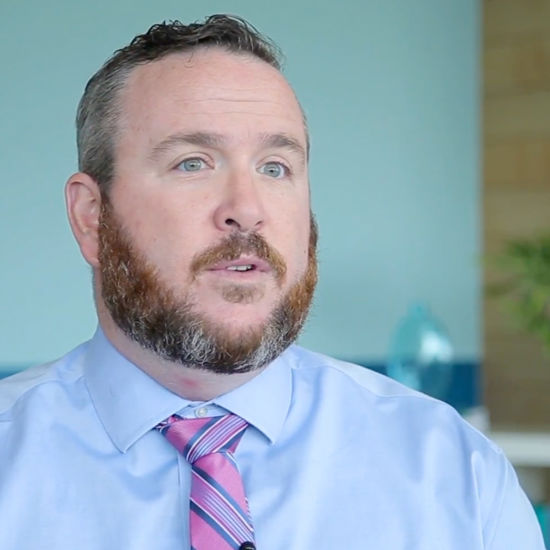
What is TTTS?
Nicholas Behrendt, MD, maternal fetal medicine specialist, explains twin-to-twin transfusion syndrome, how it develops, the stages of TTTS and why the disease is dangerous to developing twins.
Your guide to the TTTS stages
The stages of TTTS represent the severity of the fetuses' condition and the complications each baby may experience. The stage of your babies' TTTS helps your care team to design the optimal treatment plan and to determine whether fetal intervention is necessary.
See what both fetuses experience and which treatments are possible at each TTTS stage.
Signs and symptoms
Difference in amniotic fluid levels: one twin has too much fluid and the other has too little
Potential intervention
- Monitor closely via frequent ultrasounds
- Amnioreduction (drainage of amniotic fluid)
Signs and symptoms
Difference in amniotic fluid levels: one twin has too much fluid and the other has too little
Potential intervention
- Monitor closely via frequent ultrasounds
- Amnioreduction
- Laser procedure
Signs and symptoms
Abnormal blood flow in the umbilical cords and/or abnormalities in fetal heart function
Potential intervention
Laser procedure followed by amnioreduction
Signs and symptoms
Fetal hydrops: abnormal fluid accumulation for either fetus in the skin, heart, lungs or abdomen
Potential intervention
Laser procedure followed by amnioreduction
Signs and symptoms
Loss of one or both fetuses
Potential intervention
Possible evaluation of surviving fetus and further planning
Note: Potential fetal intervention relies on many factors during evaluation and therefore may vary. Ask your doctor to learn more about the Cincinnati Modification of Quintero Staging System that we use at Children's Colorado. This helps determine what fetal interventions could be possible according to your unique case of TTTS.
Choosing a fetal care center
All fetal care centers aren't alike. Some may only do evaluations or diagnostics, while others may not have a depth of experience treating your babies' fetal condition, meaning you may need to travel elsewhere for treatment.
Before you entrust a fetal care center with your babies' future, make sure they have the capabilities, technologies and expertise to care for you and your babies throughout – and even after – your pregnancy.
UP TO
10 multidisciplinary experts collaborating on your case
5
Fetal surgeons
88%
TTTS survival rate of one or both twins (since 2012)

"Whatever we can do, we're willing to do."Jenna Boomer, care coordinator
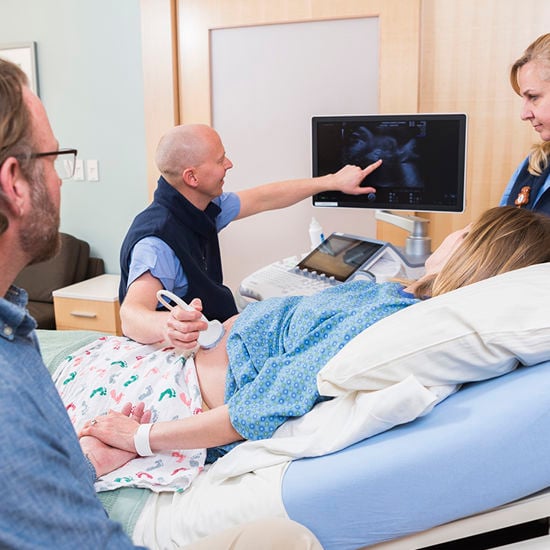
Would you like a second opinion?
If you have received a prenatal diagnosis, are considering treatment options or just want to feel more confident about your treatment plan, our fetal care experts are here to help.
Request a second opinion from our Colorado Fetal Care Center
Additional fetal care resources

Next: Surgery and recovery
Our families share tips for going though recovery of a fetoscopic laser photocoagulation and getting to the 32-week mark.
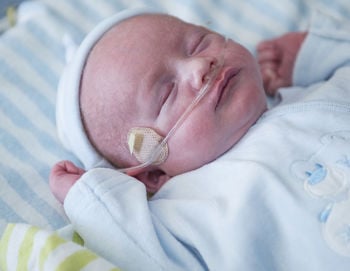
Your journey is unique, but you're not alone. Moms across the country come to us for the diagnosis and treatment of their babies' TTTS and other conditions.
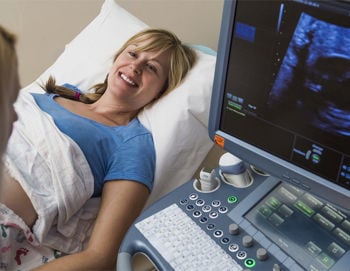
Our Colorado Fetal Care Center cares for moms and babies with the most complex fetal conditions.
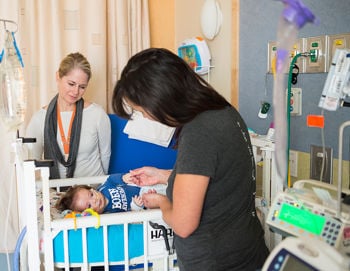
The Connections Program specializes in mental health care for families who have high-risk medical needs from pregnancy through early childhood.

Partnership with the University of Colorado School of Medicine
Children's Hospital Colorado partners with the University of Colorado School of Medicine, where many of our physicians and care providers serve as faculty.



 720-777-0123
720-777-0123






